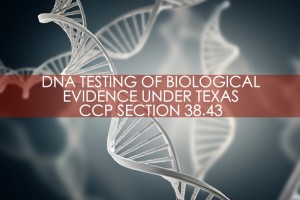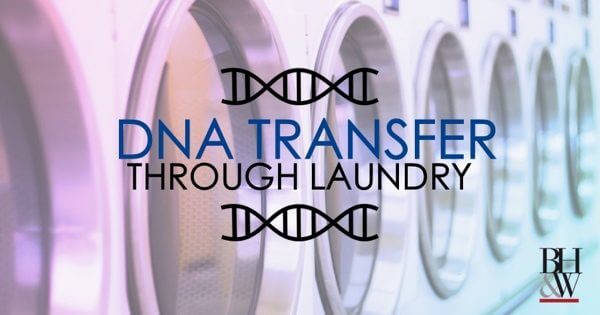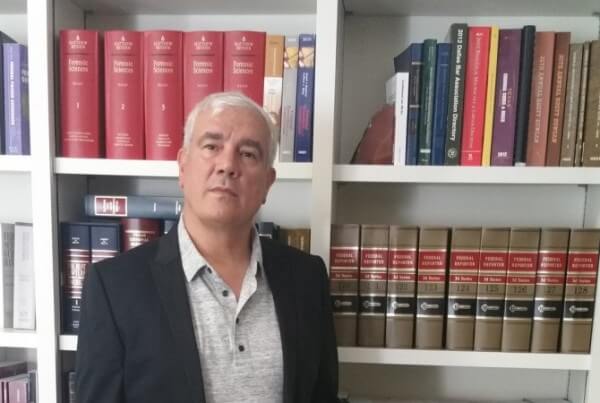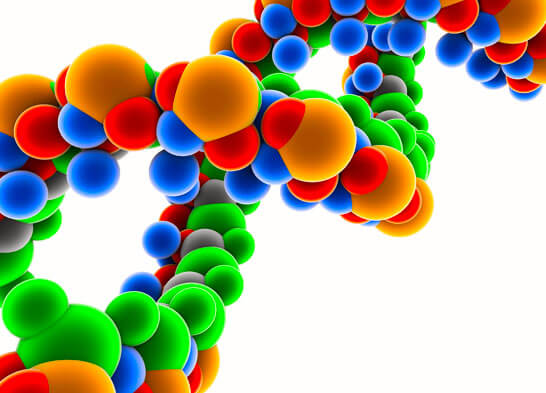Does a defendant charged with capital murder have an absolute right to have all of the biological evidence of the crime tested?
 Texas Code of Criminal Procedure, Section 38.43 deals with “Biological Evidence,” and outlines the rules and responsibilities for testing such evidence. In the mandamus case summary that follows, the relator (the defendant) is requesting that ALL of the biological evidence be tested, while the trial judge has ruled that only some testing is sufficient.
Texas Code of Criminal Procedure, Section 38.43 deals with “Biological Evidence,” and outlines the rules and responsibilities for testing such evidence. In the mandamus case summary that follows, the relator (the defendant) is requesting that ALL of the biological evidence be tested, while the trial judge has ruled that only some testing is sufficient.
In Re Solis-Gonzalez (Tex. Crim. App. – Mandamus 2016)
A Triple Homicide and Hundreds of Evidence Samples
Luis Solis-Gonzalez was indicted by a grand jury for capital murder for the 2012 triple murder of his ex-wife, her daughter, and her companion. Before trial, the State moved for DNA testing of over 200 pieces of biological material that was collected at the scene. The trial court granted that the testing be done by the Texas Department of Public Safety forensics laboratory.
A few months later, after the lab had already tested a portion of the samples, the lab communicated to the trial court that testing all of the evidence would be a lengthy process, taking three years to complete. Because of such a delay, the trial court asked the defense to identify any specific articles of biological material that it wanted tested, along with reasons why that material should be tested.
At the pretrial hearing, the State asserted that testing each and every piece of the evidence was unnecessary because the testing that the lab had already completed was sufficient for trial. Solis-Gonzalez claimed that Article 38.43 of the Texas Code of Criminal Procedure created an “absolute right to have all evidence tested.” The trial court found that testing all of the biological evidence was unnecessary, as “Article 38.43 does not mandate that every piece of evidence seized by law enforcement in a capital murder case where the State is seeking the death penalty must be forensically analyzed.” Further, the trial court added, “the defense’s response [does] not legally support further delay of trial.”
Should the Trial Judge Have Ordered Tested of All Biological Evidence?
On a petition for a writ of mandamus, the CCA reviewed the case to determine whether Article 38.43 does, in fact, create an absolute right to have all biological evidence collected at a crime scene, especially when the death penalty is at stake.
Article 38.43 of the Texas Code of Criminal Procedure
Article 38.43(j) states, “if the State and the Defendant agree on which biological materials constitute biological evidence, the biological evidence shall be tested…if the State and the Defendant do not agree on which biological materials qualify as biological evidence, the State or the Defendant may request the court to hold a hearing to determine the issue.” The statute defines biological evidence as the contents of a rape kit, blood, semen, hair, saliva, skin tissue, finger nails, fingernail scrapings, bone, bodily fluids that might establish the identity of a suspect or exculpate (show the innocence of) a potential suspect.
Justice Delivered Swiftly, or Justice Delivered Meticulously?
Here, the CCA defers to the legislative policy rationale behind Article 38.43, saying, “it thus appears that the legislature granted discretion to the trial court to separate the evidentiary wheat from the chaff and prevent delay of the proceedings because of needless testing.” Like the CCA, the trial court stated the evidence submitted and analyzed was sufficient for trial in “substantial compliance with the [legislative] intent of the statute.” It appears that the intent behind the statute is to deliver justice swiftly, not meticulously by testing each and every single piece of biological evidence. Accordingly, the CCA affirmed the decision of the trial court, and denied relief to Solis-Gonzalez.










